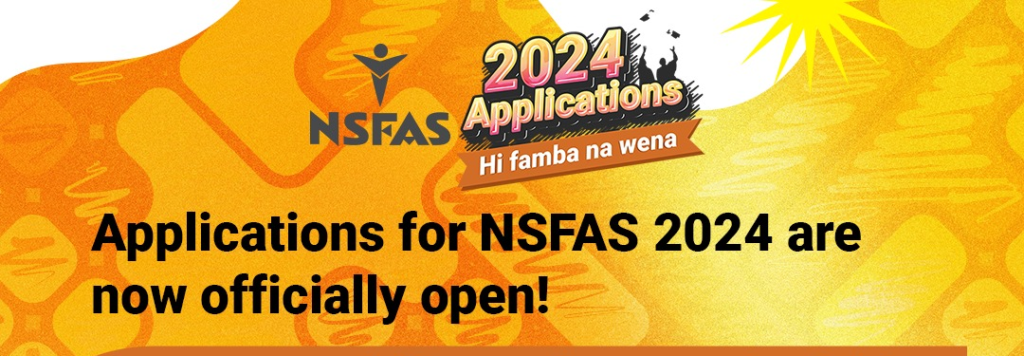NSFAS Application. How to Apply Online for 2024

Important Notice! Please take note that NSFAS officials will never ask or call you to share your password! All applicants are strongly advised to always safeguard their personal information.
What does application approved funding eligible mean when you apply for nsfas 2024
If the status show Funding Eligible it means specifically that you are eligible for funding but a university or TVET college has not approved you for admission yet.
How Much Gross Household Income Is Needed to Apply for NSFAS 2024
Must be South African citizen / permanent resident with
1- Combined gross household income should not exceed R350 000 per annum 2
2- Combined gross household income (persons living with disabilities) should not exceed R600 000 per annum
3- Students who started studying before 2018 with a combined household income of not more than R122 000 per annum.
What Supporting Documents Do I Need to Submit During the Application?
Depending on your application submission, the system will generate a unique list of required documents for upload.
All applicants are required to submit: Certified copy of your ID, not older than 3 months A signed and completed consent form. If you are dependent on your parents/guardian/spouse, please provide: Certified ID copies of parent/s, guardian, spouse not older than 3 months Proof of income of parent, guardian or spouse (payslip or appointment letter If you are self-sufficient (no parent/guardian support) please provide: Proof of income (payslip or appointment letter). If you have a disability, please provide: Completed and signed Annexure A (if your information is not pre-populated on the portal). If you are an orphan, please provide: Completed and signed Declaration Form, Other documents required, if applicable: Retrenchment letter / UIF documentation; Death certificate/s; Divorce decree.
When Is the Closing Date for Nsfas 2024 Applications
Nsfas applications will close on January 31, 2024.
What Costs Does Nsfas Funding Cover
Once your funding application becomes successful, NSFAS will cover your costs for:
Accommodation
Living allowance
Learning material allowance
Personal care allowance
If you are studying at the University of South Africa (UNISA) you will receive funding for:
Tuition
Books (subject to the number of modules registered)
Personal care allowance
If you are an eligible student with a disability, you will receive funding for:
Assistive Devices
Meals
Tuition
Transport
Tuition
Human Support
Accommodation
Allowances, excluding human support, for students living with disabilities attending TVET Colleges will as of 2023 be supported directly by the NSFAS.
Does NSFAS pay registration costs for first-year and returning students?
Yes. Registration costs are usually the first payment made towards your tuition costs, and if you have been confirmed for funding by NSFAS, universities and TVET colleges will not expect you to pay the registration fees upfront.
Select Any One of the Options Below to apply
Apply for NSFAS 2024 for Universities Apply for NSFAS 2024 for Tvet Colleges Apply for NSFAS 2024 for Disability Persons Apply for NSFAS 2024 for Distance LearningThings to Know Now Before You Begin the Application
1. Can I apply if I was funded previously? Yes, you may apply for funding. You will be required to apply during the application period. Please note that if you have been registered before 2018 your combined household income must not exceed R122 000 per annum. If you were registered in or after 2018 for the first time your combined household income must not exceed R350 00 per annum.
2. Can students with disabilities apply for funding? Yes. Students with disabilities are encouraged to apply for financial assistance. They provide special disability funding to all approved students with disabilities at any of the 26 public universities or 50 TVET colleges. The applicant’s household income must not exceed R600 000 per year.
3. Can I apply for NSFAS if I have already studied without the NSFAS funding or with another sponsor? Yes, you may apply if you are a South African citizen studying at a public university or TVET college. If you have been registered and started studying before 2018, your combined household income must not be more than R122 000 per annum for you to qualify. However, if you were registered in or after 2018 for the first time, your combined household income must not be more than R350 000 per year.